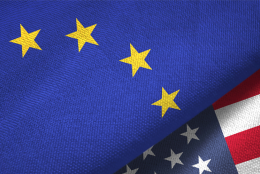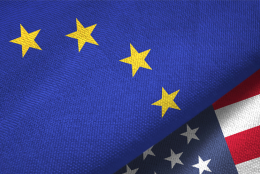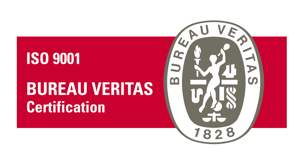Article

First contacts with the UPC: Waiving jurisdiction of the UPC
By Geoffroy Cousin
The Agreement on the Unified Patent Court (AUPC) and the European Patent with Unitary Effect (EPUE) were announced in 2012. After the initial surprise, interest in the new system has weakened during the long process of ratification of AUPC.
The announcement of the forthcoming ratification by the United Kingdom and Germany augurs an upcoming entry into force of the system (subject to the impact of a possible exit of the United Kingdom from the European Union). One of the first questions, for right holders, is whether they want to register a unitary effect for their European patents, a topic to which we shall return later.
Paradoxically, even before the question of the unitary effect, rights holders must first determine whether it is desirable for them to waive the jurisdiction of the new court (UPC).
This is a complex issue, which requires that the potential user understand what the benefits of the UPC could be.
Let us recall that, by default, the UPC will treat the vast majority of litigation involving European patents (infringement, validity, declaration of non-infringement), whether they have unitary effect, including European patents or European patent applications filed before the entry into force of the UPC. In other words, by default, it will deal with roughly all European patents. It will rule for all states that have ratified the UPC and in which the European patent is in force.
One effect of the UPC is that it will be possible for the right-holder to obtain a single decision for multiple countries, in a manner that is advertised as fast (final pleadings advertised as having to be filed within less than one year, according to version 18 of the Draft Rules of Procedure before the UPC (DRPUPC)), which will put pressure on the defendant.
This system, beneficial if favorable to the applicant, has the corollary risk of a negative decision with a large geographic reach.
However, this risk is still difficult to assess, since the UPC cannot yet rely on its own case law, and inspirations from the different national laws is still impossible to predict.
For European patents without unitary effect, the UPC allows for a transitional period of seven years after its entry into force, during which actions for infringement or invalidity can be brought before national courts.
Although risk adverse right-holders may choose, during the transitional period, to initiate their actions before national courts, the UPC is likely to be heavily used in actions for revocation of European patents. Indeed, an applicant for revocation may, even after the opposition period before the European Patent Office (EPO), apply for the nullity of the European patent centrally before the UPC.
For European patents without unitary effect, the UPC thus allows the holder to waive the jurisdiction of the UPC (waiver procedure, known as "opt-out"). In the case of such a waiver, the patent would remain involved in a system of actions for the infringement / validity before the national courts.
Despite the slowness of some national procedures, and the existence of conflicting decisions in different countries, the temptation, for right-holders, to waive the jurisdiction of the UPC in favor of a known system, is understandable, especially if this waiver will prevent a single centralised action against the validity of the patent.
At the entry into force of the AUPC, a race was feared between patentees rushing to waive the jurisdiction of the UPC ( "opt-out") to avoid a centralized action for nullity, and invalidity applicants not wanting to miss this opportunity to effectively challenge granted European patents.
To avoid this potential problem, it was announced that right holders could register their waiver even before the entry into force of the Agreement (so-called "sunrise" period, the terms of which remain to be defined). Thus one of the first questions about this new system is that of the renunciation to the benefit of the UPC.
The UPC allows also for those who have chosen to waive the jurisdiction of the UPC to return into the game (procedure known as "opt-in"), that is to say, to withdraw their renunciation to the entitlement to the UPC.
One possible strategy may be to waive the jurisdiction of the UPC ( "opt-out") to avoid a centralized invalidity action and, in case of an offensive action, then study the possibility to benefit from the UPC rather than national courts by withdrawing the waiver ("opt-in").
However, there is also a risk in waiving the benefit of the UPC. Otherwise it would have been too easy!
In the past, the Draft Rules of Procedure were such that waiving the benefit of the UPC involved little risk, because it was expected that it would be possible at any time to enjoy again the benefits of the UPC ("opt-in "), except in the context of a particular case already brought before a national court.
However, under Rule 5.9 of DRPUPC, it is now expected that, for a European patent for which the jurisdiction of the UPC was waived, and having been involved before a national court in a case concerning a matter for which the UPC is competent, it would no longer be possible to withdraw this waiver ("opt-in"), even if the matter in question is completed. In other words, a patent for which the jurisdiction of UPC has been waived ("opt-out") could be locked out of the UPC by an action before a national court.
For some patents where the UPC could be of interest (especially when the case law and practice will begin to be established), it might be a pity to have been locked out of the UPC by a national action by a third party because of a poorly timed waiver ("opt-out").
The right holders may therefore have to study in each case the question of waiving the jurisdiction of the UPC, especially because a patent will be entitled to only a single waiver.























